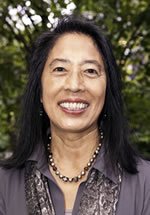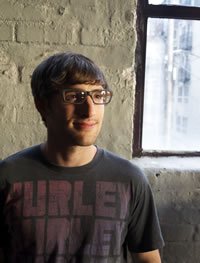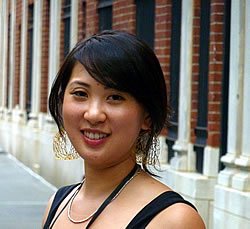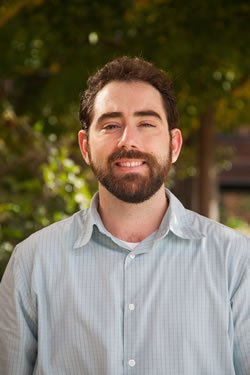Summer 2015
Published: 08/11/2015
Greetings from the Chair
 |
| Photo: Sheri Mizumori |
Welcome to the 2015 Summer Edition of the Psychology Newsletter! It has been a most wonderful year for the department. Our thriving undergraduate majors continue to have strong and unique impact in the community, and experience the richest research opportunities at the UW. To push the boundaries of these opportunities, the department now provides for the first time competitive undergraduate research and travel awards. These awards are supported by the department in partnership with our new Ruth H. Hagenstein Endowed Scholarship fund. Students in our nationally ranked graduate program were highly successful in securing research funding. This was not an easy feat in this tough economic climate! The innovative research of our faculty continued to expand with the acquisition of their new research grants, and with the unveiling of a new seed grant mechanism within the department—the Faculty Interdisciplinary Research Program Award, or FIRPA. FIRPAs are meant to jumpstart new and transformative discoveries in psychological science with unique collaborations that cross traditional disciplinary borders. Several new FIRPA projects are now underway.
Our annual Edwards Public Lecture Series was again a great success as our faculty showcased cutting edge research on the Psychological Science of Inequity and Inequality, a timely subject of concern in today’s society. To further our effort to bring the latest psychology research directly to the public, we have expanded our public lecture program to include single, more specialized lectures throughout the year. The most recent such public lecture focused on our current understanding of the effects of exercise on cognitive and mental health. I hope you had a chance to attend these lectures, but if not, they are available on-line so you still have an opportunity to enjoy them!
We were fortunate to be able to add a number of stellar faculty and staff to our department team. Dr. David Gire is a new Assistant Professor of Behavioral Neuroscience. Using state-of-the-art neuroscience methods, Dr. Gire’s research explores how neurons of the brain allow us to make odor-based decisions. Joanne Edwards joined us as the Assistant to the Chair, and Melissa Harrell came on board as our Payroll Coordinator. Very recently, Jeneil Lagasse has become our Associate Administrator, and Cy Delgado has joined our fabulous team of undergraduate advisors. I would like to extend a warm welcome to all!!
With the spring quarter, we saw many hundreds of our students graduate with B.A., B.S., or PhD. Degrees. What a fabulous accomplishment, congratulations! It was an honor to be a part of their journey as they prepared to go out to make their mark on society. I wish everyone the best, and I very much look forward to hearing updates from our newest alums.
To all of our department friends, thank you for continuing to support a bright future in Psychology. Have the most wonderful summer!
Warm regards,
Sheri
Featured Articles
Alex Kale: Intellectual Boundary Crosser
"In more than 35 years here at UW, I have not worked with an undergraduate of Alex's abilities to think and question deeply, to integrate across fields (psychology, philosophy, and neuroscience, in this case), and domains of work (laboratory, computational, conceptual, and programming), and to propel his understanding and achievement far beyond his launch point."
- Psychology Professor Steve Buck, speaking about Alex Kale
 |
| Photo: Alex Kale |
As the son of a European history professor at Washington State University, Alex Kale seems to have been born to the academic life. It's no wonder that upon arriving at the University of Washington to begins his own studies his intellectual interests were ignited and he began to take advantage of the wide range of opportunities at his disposal. Now, set to graduate Magna Cum Laude and with Departmental Honors with a Bachelor of Science in psychology and minors in music and philosophy, Alex remembers a time when he worried about overdoing it. As he considered joining the psychology honors program at the beginning of his junior year, Alex wondered if he might be stretched to thin. "I worked part time and played trumpet in multiple ensembles," he recalls, "but I decided to pursue an honors project because I wanted to challenge myself and to experience the process of scientific research from start to finish."
Thinking back on that time of uncertainty, Alex now declares that he could not have chosen a better research lab than that of psychology professor Steve Buck. "Some of my best memories from the last two years are of sitting in the lab with Steve and his graduate students Joris (Vincent) and Tanner (DeLawyer)," says Alex, "realizing that I could come to the table with fresh ideas and make valued contributions in a room full of experts really helped me develop my own intellectual identity." With that now formed identity, Alex is considering graduate programs that will allow him to continue to do research and to explore his curiosities.
While his passion for the study of psychology, specifically the mind-body problem and the intersubjectivitiy of perception, remained central to his studies, Alex's interests extended beyond Guthrie Hall. A class on the philosophy of science, taught by philosophy professor Lynn Hankinson Nelson, caught his interest and led to his pursuit of a minor field of study in philosophy. "Philosophy continues to interest and challenge me," says Alex, "and I am sure it will inform my research in the future." A love of and deep appreciation for music also informed Alex's path. A member of several music ensembles, Alex speaks of his great fortune at having had the opportunity to work with one of Seattle's premier jazz musicians, Fred Radke. Alex notes that playing under Radke's direction as a member of the UW Studio Jazz Ensemble was a highlight of his UW experience.
Characterized by Professor Hankinson Nelson as an "intellectual boundary crosser," Alex has demonstrated throughout his UW career the kind of originality and sophisticated interdisciplinary work that one might hope to find among star graduate students and even faculty. His psychology honors advisor Steve Buck highlights Alex's unmatched ability to "integrate across fields and domains of work." While his faculty mentors hold him up as one of the best students with whom they have ever worked, Alex simply chalks things up to his intellectual curiosity and desire to pose questions. "Never stop asking questions," he urges, encouraging other students to take ownership of their education... and, to take bold and calculated risks. "This is how the best ideas are born," says Alex, "and without such risks, scientific inquiry would grind to a halt."
Far from being ready to grind to a halt himself, Alex plans to continue to play music, to continue researching and taking classes, and to continue asking questions.
Clinical Graduate Student Receives GO-MAP Diversity Dissertation Fellowship
 |
| Photo: Jessica Chen |
The University of Washington Graduate School Graduate Opportunities and Minority Achievement Program (GO-MAP) provides diversity fellowship support for students.While most of these opportunities are provided during admissions for recruiting new students, GO-MAP has a few awards for advanced students, such as their GO-MAP Dissertation Fellowship. The Psychology Graduate Program nominated Jessica Chen, a 7th year Adult Clinical student working with Ronald Smith, who received a Diversity Fellowship which provided a stipend and tuition exemption for her final two quarters residency in our department! This funding provided support while Jessica finalized and defended her dissertation prior to leaving to complete her required clinical internship.
Here are Jessica’s thoughts on being a GO-MAP fellow and being involved the University-wide GO-MAP community.
Let's start with the basics, where are you from and where did you complete undergrad/masters?
I'm from the Bay Area of Northern California. I completed my undergrad at Columbia University in New York City. Huh, where did I complete my masters...oh! Here!
How did you wind up at UW/why did you apply here? What do you think about living in Seattle?
I applied to UW because the clinical program here is exceptional and there were several faculty members whose research interests matched my own. It took me five years to really, really like Seattle, but now I love it. It's hard to imagine living anywhere else.
What is your research interest and how did you get into it (what inspires/motivates you)?
I am interested in making effective psychotherapies more efficient and accessible to all people, particularly those who have difficulty accessing care because of stigma, discrimination, or geography. This research interest has morphed over the course my graduate career. I started out doing research on treatments for PTSD, then began working with my current advisors on Internet-based interventions for stress. I'm inspired by the possibilities technology opens up in terms of disseminating evidence-based psychotherapy and I hope to continue working in this growing research field.
How did you learn about your funding opportunity and tell us about the application/waiting process?
I think my advisor saw a memo about it and forwarded it to me. I thought, "Why not?" I've always loved GO-MAP and their work on campus.
The application was pretty straightforward and short. I took a risk and made my personal statement very personal and honest, even though I worried it would come across the wrong way to others. I'm glad I was true to myself because it ended up working out!
The waiting process was difficult because months after my application was submitted there was no word on its outcome. About four months after I applied, I remember saying to Jeanny (Jeanny Mai, our outstanding Graduate Program Advisor), "I guess no news is bad news." Then suddenly, word came from GO-MAP that money was available and I was awarded a two-quarter dissertation fellowship!
How did you feel when you learned that your application was accepted and that you will receive funding?
AMAZING. It was such a surprise. I actually thought they might have sent the email in error. I made my husband read it to make sure it was my name and that it made sense, then I double checked with Jeanny because I didn't want to get my hopes up.
Do you have any advice/tips/suggestions for others who may apply to this opportunity? About graduate study in general?
I want to hype this award because it has been an amazing opportunity so far! This particular dissertation fellowship comes with a twice-monthly writing group of other awesome doctoral candidates in a variety of fields. They're all such interesting people who are passionate about what they do. Ralina Joseph (Associate Professor in the Department of Communication who runs the writing group) is incredible.
In terms of advice for applying to this opportunity, I would say that it worked out well for me to be thoughtful and honest in how I approach diversity issues in my personal life and in my research.
What do you hope to accomplish with the funding and/or while in the UW Psychology graduate program?
I hope to continue making connections with fellow graduate students and I really appreciate the opportunity to be mentored by faculty of color, because it is a different and unique experience. I hope to one day pay it forward.
Oh yeah, and I definitely hope to finish my dissertation this year!
What do you like doing in your spare time?
Playing with my son, who is going through a trucks and trains phase, and cooking or eating out with my husband.
The last book and/or movie you saw and enjoyed?
I read Gone, Girl this summer/fall and it was addictive! I'm also looking forward to the new Hunger Games movie. I'd like to watch it at the Big Picture downtown, where you can order food and drinks to your seat.
What you plan to do once you complete your PhD?
Clinical internship, then beyond!
Supplemental Reading:
- Alcor introduction and2014 article (when Jessica received the ALCOR).
- Exu Anton Mates (Animal Behavior with Jim and Renee Ha) and Jose Ceballos (Cognition & Perception withChantel Prat) also received fellowship awards from GO-MAP and shared their experiences.
- Graduate Opportunities & Minority Achievement Program (GOMAP)
Support UW Psychology Graduate Students by donating.
New faculty spotlight - David Gire
 |
| Photo: David Gire |
What do art, philosophy, and neuroscience have in common? Plenty, according to new Assistant Professor David Gire, who has interests in all three.
David’s interdisciplinary interests began in high school in San Jose, CA, where he was raised and his two brothers and parents still live. Inspired by a nationally renowned teacher about the value of studying the intersections of different disciplines (in high school, it was genetics and the law), David went on to UC Berkeley to double major in Philosophy and Neurobiology. He continued on with a Ph.D. in neuroscience from the University of Colorado at Denver, where he stayed on for a two-year post-doctoral position. He finished a second post-doc at Harvard before joining our department this January.
How does philosophy tie in with his science? Logical rigor and clean writing, attests David. Most importantly, it was philosophy that piqued his interests in the big, basic questions: Where does our sense of self come from? What is consciousness? David delved into such fundamental questions through research with humans at first, studying psychophysics with Mathew Diamond’s lab in Trieste, Italy. Others in the lab worked on information processing by neural circuits in rodents. The ability of this work to more directly connect what neurons in the brain were doing with perception and behavior inspired David to attempt to understand the brain at this more reductionist level.
And art? An early fascination and admiration for neuroanatomy led to interest in classical representations of the human form, which led him to seek out Caravaggio paintings in Rome when on fellowship in Italy. In his scientific reports, he incorporates his art, using computer software to create three-dimensional images from his findings. One was chosen for the cover of the journal Neuron in 2011.
In his research, David seeks to combine multiple disciplines to understand how neural circuits in the brain process complex natural stimuli to guide flexible behaviors such as navigation and foraging. David’s research employs the rodent olfactory system as a model for sensory information processing. This sensory system is well suited for studying how neurons process complex stimuli since odors are transported through the environment by chaotic, turbulent plumes. By studying how the brain uses these fluctuating odor cues to perform ethologically important behaviors, David seeks to define fundamental operations performed by the brain to interpret input from a chaotic, noisy environment.
The key attraction of UW, David explains, was the potential for fruitful collaborations. His interests in complex behaviors such as navigation were a natural fit with ongoing work in the Department of Psychology’s Behavioral Neuroscience area and his desire to employ ethologically-relevant paradigms was supported by research in the Animal Behavior area. Across the campus, the strength of UW in neuroscience also drew David to Seattle. In fact, he had his eye on UW after a series of invited lectures at Harvard from a variety of UW professors, including Jeff Riffell and Nathan Kutz. Their work demonstrated the interdisciplinary and collaborative nature of the science in Seattle.
David is an eager instructor, having volunteered to teach without compensation while he was in graduate school. Here at UW, he has already accepted two graduate students and looks forward to teaching a graduate course on computer programming for data analysis in the Spring.
David has enticed a fellow neuroscientist from Denver, Mike Grybko, to come to UW as the manager of David’s new lab. Another man of many talents, Mike is a skilled classical guitarist. David’s wife, Arisa, is a graduate from the same doctoral program in Denver as he attended. An Eagle Scout, he is excited about exploring with her the many outdoor attractions in the Northwest. This spring, they find themselves a little busy with other activities: they welcomed their first child in late April.
Faculty accomplishments in the news
David Barash |
In January, David Barash's work on monogamy was mentioned in an article about the purpose of love. http://www.sbs.com.au/news/article/2015/01/11/what-if-purpose-love-get-us-out-relationships-not-them David Barash's evolutionary biology research on jealousy between partners was cited in this January article on insecurity and envy in relationships. In January, David Barash authored an Op-Ed published in the LA Times on nuclear weapons and the conflict between our biological and cultural natures. http://www.latimes.com/opinion/op-ed/la-oe-barash-nuclear-weapons-evolution-20150125-story.html
|
Jonathan Bricker |
In April, Jonathan Bricker gave a TED talk on "the secret to self-control", discussing his work that has uncovered a scientifically sound approach to behavior change that is twice as effective as most currently practiced methods. https://www.youtube.com/watch?v=tTb3d5cjSFI&feature=youtu.be |
Steve Buck |
In February, Steve Buck's Perceptual and Neural Processing of Dark Colors was awarded a Royalty Research Fund grant, to explore how the visual system processes little-studied colors that are darker than their surroundings differently from bright colors. |
Sapna Cheryan |
Sapna Cheryan's work highlights other factors in classroom design and layout that influence how we learn, featured in a January article. In April, a new study by Sapna Cheryan about the role sterotypes play in influencing women's participation in the fields of computer science and engineering was featured in mutiple articles.
Sapna Cheryan detailed the ideal physical classroom learning environment in this April article. http://qz.com/375894/this-is-what-the-ideal-learning-environment-looks-like-according-to-science/
|
Jaime Diaz |
Jaime Diaz presented some of his recent data on incorporating certain technologies into university teaching at the 2015 UW Teaching and Learning Symposium on April 14. http://www.washington.edu/teaching/innovation/teaching-and-learning-symposium/ |
Ione Fine |
A paper by Ione Fine on a man with restored sight provides valuable insight into how vision develops, discussed in this April article. http://medicalxpress.com/news/2015-04-sight-insight-vision.html |
Anthony Greenwald |
UW Professor of Psychology Anthony Greenwald exposes our hidden biases and questions the extent to which they shape our likes, dislikes, and judgments about people in a Seattle Channel video lecture in December. http://www.seattlechannel.org/misc-video?videoid=x22212 This January article about implicit bias and employment law draws heavily on work done by Tony Greenwald. An April New York Times opinion piece on racial bias cited Tony Greenwald's UW-developed Implicit Association Test.
|
James Ha |
James Ha gave some insights about animal behavior in a preview of his sold out seminar in April. http://www.washington.edu/wholeu/2015/03/26/animal_behavior/ |
Renee Ha |
Renee Ha and her lab’s research on Mariana crows was featured in Bird Conservation International in June. |
Susan Joslyn |
Susan Joslyn's study on false alarms in extreme weather scenarios was featured in January and February in varioius articles on noncompliance with weather warnings.
Susan Joslyn's expertise on real world decision-making was discussed in this February article in the Seattle Times. http://www.seattletimes.com/seattle-news/weigh-decisions-but-often-you-have-to-go-with-your-gut/
|
Cheryl Kaiser |
In February, Cheryl Kaiser received the 2014 Gordon Allport Prize from the Society for the Psychological Study of Social Issues for the best paper of the year addressing intergroup relations. Kaiser, C. R., Major, B., Jurcevic, I., Dover, T. L., Brady, L. M., & Shapiro, J. R. (2013).Presumed fair: Ironic effects of organizational diversity structures. Journal of Personality and Social Psychology, 104, 504-519. |
Peter Kahn |
Peter Kahn's findings were mentioned in an April article about humans' relationship to robots. Peter Kahn describes "environmental generational amnesia" in this April article on the greater consequences of climate change. http://www.huffingtonpost.com/marianne-krasny/extinction-of-experience-_b_7035252.html
|
Liliana Lengua |
In January, Lili Lengua's work with the UW Center for Child and Family Well-Being was highlighed in an article in which she discussed the changing definition of family, in order to combat neglect and build better families. http://crosscut.com/2015/01/building-better-family-kathleen-donnelly/ |
Marsha Linehan |
Marsha Linehan's Dialectical Behavior Therapy was mentioned in an article about radical acceptance surrounding the outcome of the Super Bowl in April. http://www.huffingtonpost.com/dr-gregory-jantz-phd/deflated-in-seattle_b_6680156.html In April, the results of a study by Marsha Linehan showed that a variety of dialectical behavior therapy interventions were effective at reducing suicide attempts. http://medicalxpress.com/news/2015-03-variety-dbt-interventions-therapists-effective.html Marsha Linehan delivered a James McKeen Cattell Fellow Award Address at this year's Association for Psychological Science Convention in May. http://www.psychologicalscience.org/index.php/convention/2015-award-addresses#linehan Marsha Linehan was recognized for her lifetime of contributions to Psychology and mental health research when she received the Association for Psychological Science James McKeen Cattell Fellow Award in June.
|
John Palmer |
Elizabeth Loftus and John Palmer's 1974 framing study was referenced in an April article from Business Insider about how to capture someone's attention. http://www.businessinsider.com/proven-ways-to-get-anyones-attention-2015-3 |
Kate McLaughlin |
University of Washington Assistant Psychology Professor Kate McLaughlin's work is at the cutting edge of new research on how abuse and neglect shape the human brain, featured in a December four-part podcast series. http://crosscut.com/2014/12/neglected-brain-podcast-steve-scher/ An April study by Kate McLaughlin shows that children's early environments have a lasting impact on their stress response systems. http://medicalxpress.com/news/2015-04-early-environment-impact-stress-response.html Kate McLaughlin’s work suggests that childhood adversity is a bigger risk factor for heart disease and type 2 diabetes than nearly anything else, in this May article.
|
Andrew Meltzoff |
Andrew Meltzoff helped to conduct a new study about the role sterotypes play in influencing women's participation in the fields of computer science and engineering, featured in April. Andrew Meltzoff's work in developmental psychology was featured in an April article on the importance of everyday interactions between parents and children on childrens' cognitive development. In April, Andrew Meltzoff and the team at I-LABS identified that playing a computer game in sync creates a greater percieved similarity and closeness among children who have just met.
|
Kristina Olson |
In February, Kristrina Olson began a landmark study to document the experience of transgender children, the first of its kind in the nation.
Kristina Olson was awarded a Royalty Research Fund grant in February for her work exploring basic gender cognition in a national sample of transgender children, titled "Gender Nonconformity in Middle Childhood". Kristina Olson's groudbreaking research on gender nonconformity in childhood continues to make news in February.
Kristina Olson's research on gender cognition in transgender children disproves claims about kids "outgrowing" their gender confusion, published in April. http://www.dailyuw.com/news/article_b1a6a166-c210-11e4-880d-4f6b6b420d81.html Kristina Olson's work is helping parents support their children to be their truest selves, in a series of April articles. http://www.hrc.org/blog/entry/new-resources-for-parents-of-transgender-children http://magazine.good.is/articles/raising-ryland-raises-awareness http://artsci.washington.edu/news/2015-03/identifying-transgender-childhood Kristina Olson's exciting new research on transgender and gender non-conforming youth was featured on a May PBS NewsHour "Is gender identity biologically determined?" http://www.pbs.org/newshour/videos/#143893
|
John Palmer |
John Palmer and Elizabeth Loftus' 1974 framing study was referenced in an April article from Business Insider about how to capture someone's attention. http://www.businessinsider.com/proven-ways-to-get-anyones-attention-2015-3 |
Chantel Prat |
Chantel Prat was quoted in a January Huffington Post article, "5 Amazing Advances in Brain Research in 2014", discussing University of Washington research in direct brain-to-brain communication. http://www.huffingtonpost.com/2014/12/31/brain-research-2014_n_6334088.html |
Ronald Smith |
In January, Ron Smith's work on coaching styles was mentioned in an article discussing how coaching means different things to different people. |
Frank Smoll |
Frank Smoll's work was discussed in an April article on the struggles of parent-coaches. http://www.deseretnews.com/article/865623434/The-delicate-job-of-a-parent-coach.html Frank Smoll explains how to be a true winner in a May post at Psychology Today. https://www.psychologytoday.com/blog/coaching-and-parenting-young-athletes/201402/how-be-winner KJR Sports Radio interviewed Frank Smoll about the Professionalization of Youth Sports in May. https://psych.uw.edu/newsattach/media/smoll3.mp3
|
Jessica Sommerville |
Jessica Sommerville found that humans are capable of altruism earlier than previously thought, discussed in this January Huffington Post article. http://www.huffingtonpost.com/joel-tauber/we-share-more-when-we-fee_b_6457086.html |
Andrea Stocco |
Andrea Stocco's work in direct brain-to-brain communication research was discussed in a January Huffington Post article on 2014 advances in brain research. http://www.huffingtonpost.com/2014/12/31/brain-research-2014_n_6334088.html Andrea Stocco and colleagues research on brain-to-brain communication is discussed in this May article in the Smithsonian magazine.
|
Wendy Stone |
In January, Wendy Stone and UW's Research in Early Austism Detection and Intervention (READi) Lab implemented a new five-year, 3.9 million initiative to expand their work and continue to lead the field in identifying children with special needs.
Wendy Stone's early autism identification research continues to attract attention in April. https://www.youtube.com/watch?v=vSae0DwyvYY&feature=youtu.be
|